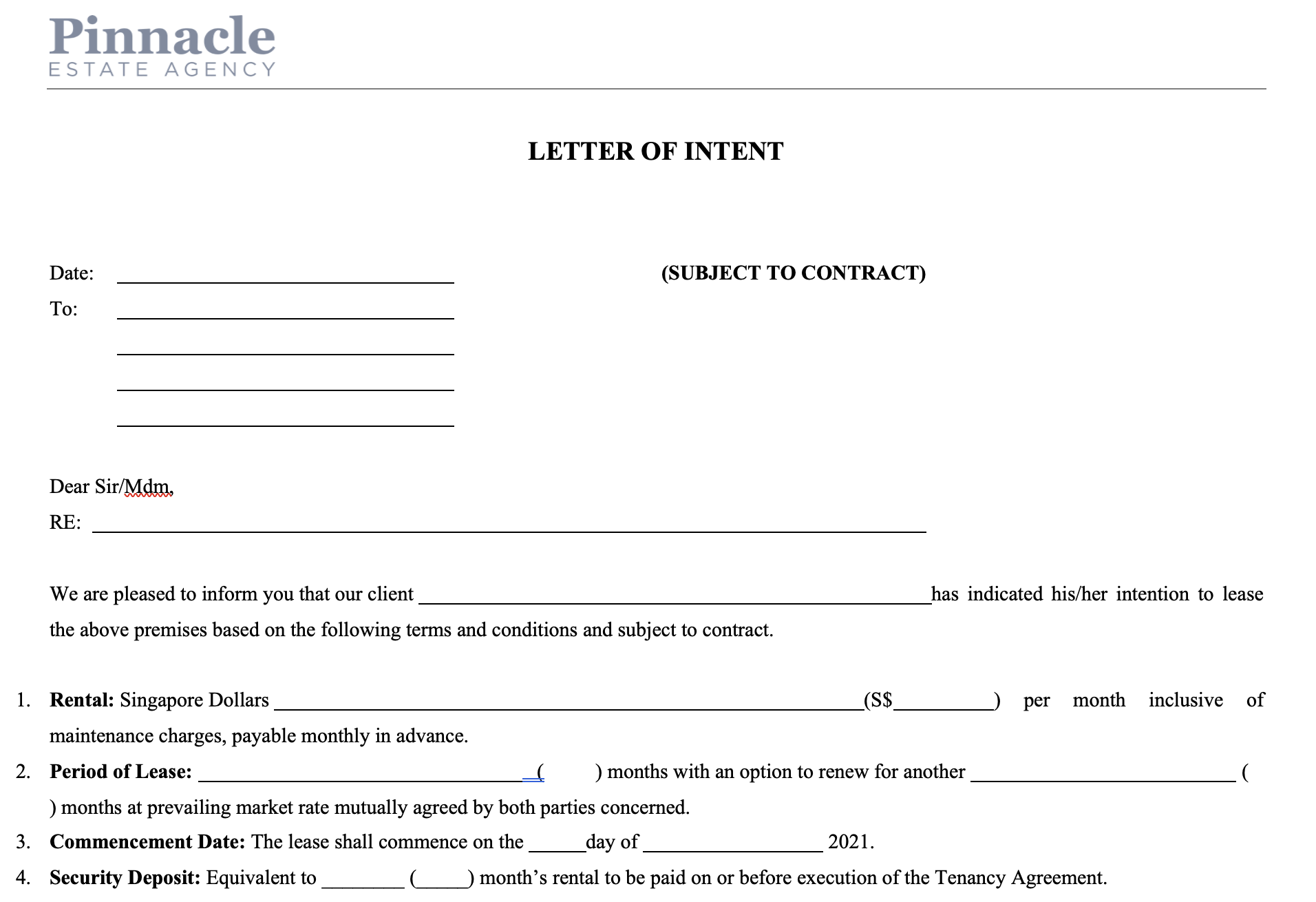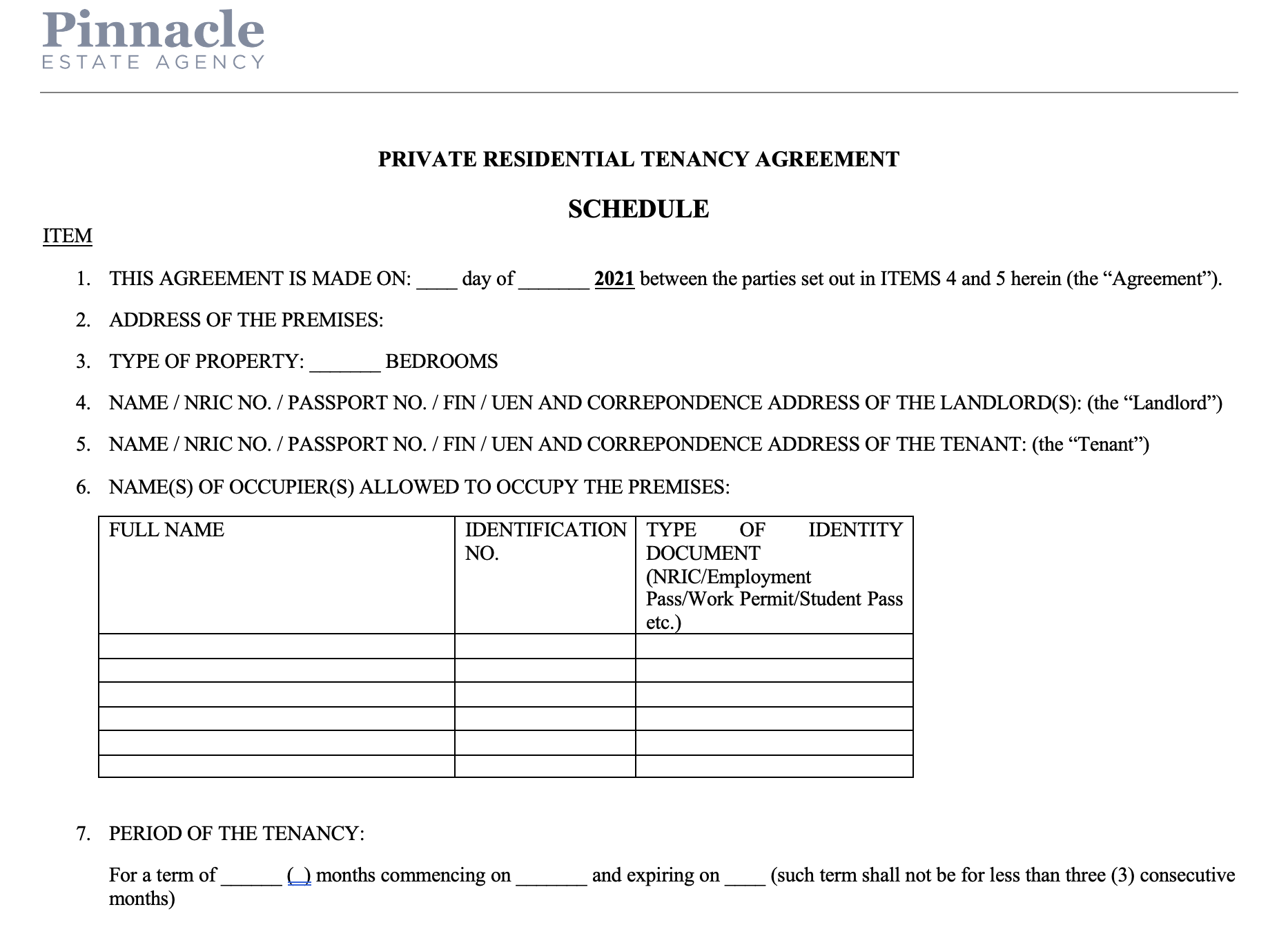How to Deal with a Landlord Who Refuses to Refund Your Security Deposit?
This article discusses in-depth details about security deposit, step-by-step instructions on how to recover it from the Landlord, and what measures tenants could take to prevent it from happening
When a tenant rents property from the owner they both sign a tenancy agreement that spells out the terms of the tenancy. At that time, it’s customary for the tenant to pay their landlord a security deposit.
The security deposit on a 1-year lease for most residential properties in Singapore typically equals one month’s rent, and if you have a 2-year lease, it would be two months’ rent. How the security deposit can be used is spelled out in the tenancy agreement. But it’s typically used to pay for any losses the landlord suffers when a tenant damages the property in some way and/or breaches the tenancy agreement.
At the end of the tenancy, the landlord is supposed to give the tenant a refund on their security deposit within 30 days (or sooner), less any deductions. This allows him/her plenty of time to determine how much the repairs will cost if the tenant’s actions, or negligence caused any damage.
Table of Contents
What is the difference between a security deposit and a good faith deposit?
How much do tenants have to leave for a security deposit?
When must the security deposit be paid?
What is the security deposit supposed to be used for?
Is the security deposit allowed to be used to pay for regular wear and tear?
When is a landlord supposed to refund a tenant’s security deposit?
How to Deal with a Landlord Who Refuses to Refund Your Security Deposit
What measures can I take to protect my security deposit?
What is the difference between a security deposit and a good faith deposit?
A good faith deposit is paid by a prospective tenant to reserve a property they’re interested in renting. This puts a hold on the property until they come to an agreement with the landlord on the terms of the tenancy and the two formally sign a tenancy agreement.
How much do tenants have to leave for a security deposit?
The tenant will negotiate with the landlord on the amount required for the security deposit.
However, the security deposit on a 1-year lease for most residential properties in Singapore typically equals one month’s rent, and if you are signing a 2-year lease, it would be two months’ rent.
When must the security deposit be paid?
The security deposit is typically due when the tenancy agreement is signed or when the tenant moves into the property, or whenever both parties agree.
What is the security deposit supposed to be used for?
Money can be deducted from the security deposit to pay for unpaid rent when the tenancy ends.
However, the tenant would be in breach of contract if he/she didn’t pay rent as the tenancy was ending in order to force their landlord to use their security deposit for the rent payment.
This would provide the landlord with grounds to take legal action for breach of contract against the tenant.
Even so, the landlord would need to prove that he/she suffered damages when they file their legal claim against the tenant.
An example of this would be if the landlord could prove that the tenant damaged the property, but no funds were available from the security deposit to pay for repairs since it had to be used for the unpaid rent.
If the property has not been damaged and the landlord has no legitimate reason for deducting any money from the security deposit, the tenant may have a good reason for withholding the final month’s rent and thus breaching the tenancy agreement.
For example, if the landlord has a track record of being dishonest in his/her dealings with the tenant. Therefore, the tenant has reason to believe that the landlord will not refund the security deposit no matter what condition the property is in when the tenancy ends.
Is the security deposit allowed to be used to pay for regular wear and tear?
Generally speaking, nothing should be deducted from the security deposit to pay for regular wear and tear.
Regular wear and tear consist of a bit of fraying on the rugs and minor scuffs on the floors and walls. Therefore, repainting the walls and polishing the floors are not costs that should be deducted from a tenant’s security deposit.
An exception could be made if the tenant had damaged the floors and/or walls beyond what would be reasonably considered regular wear and tear.
Read more on What is Considered Fair Wear and Tear? And Who is Liable, Landlords or Tenants?
When is a landlord supposed to refund a tenant’s security deposit?
The landlord is supposed to return a security deposit to the tenant, less any legitimate deductions, within a reasonable period of time after the end of a tenancy. This is all subject to the terms spelled out in the tenancy agreement.
The landlord needs sufficient time to evaluate the condition of the property and any costs for repairs that may be needed. Therefore, 7 days, 14 days or 30 days may be needed to determine if the tenant’s actions or negligence caused any damage.
We recommend addressing this in the tenancy agreement by stipulating an exact deadline for refunding the security deposit.
How to Deal with a Landlord Who Refuses to Refund Your Security Deposit
Instances have certainly occurred in Singapore in which landlords have refused to refund their tenants’ security deposits within the timeframe spelled out in the tenancy agreement. If you have fully complied with the terms set forth in your tenancy agreement, your landlord has no right to withhold your security deposit.
Should this happen, ask your landlord to give you his/her reasons for withholding your security deposit. If he/she won’t substantiate their decision, you may want to send a demand letter. If that doesn’t work, you have the option of filing a claim in the Small Claims Tribunals.
Step-by-step Instructions
1. Ask your landlord to give you his/her reasons for withholding your security deposit.
If your landlord will not refund your security deposit, insist that he/she give you the reasons in writing. To substantiate his/her deductions you need to be given copies of the receipts or invoices reflecting the cost of repairs.
2. Send a demand letter.
If your landlord refuses to provide you with his/her reasons for refusing to refund your security deposit, engage a lawyer to send a demand letter. This is usually a fast and reasonably cost-effective way of getting your deposit back.
This demand letter will spell out a series of demands that the landlord must comply with, or you will take legal action against him/her.
A lot of landlords probably think that their tenants, especially foreigners who may be moving out of the country, don’t know their legal rights and/or have no idea how to enforce those rights.
A demand letter from a lawyer is usually all that’s needed to force them to do the right thing.
3. Turn to the Small Claims Tribunals by filing a claim.
If a demand letter from your lawyer doesn’t get any results, or if you can’t afford to engage a lawyer to send a demand letter, for a small fee you can always resort to filing a claim with the Small Claims Tribunals if your security deposit does not exceed S$20,000.
If your landlord wrongfully withheld your security deposit, the tribunal would likely make an order forcing your landlord to refund your deposit. However, it the tribunal rules the other way, there are no grounds to appeal its decision except on a few technical issues.
Furthermore, if you decide to go this route you will need to be physically here in Singapore.
If you can’t remain in Singapore, you can engage a lawyer to file your claim, but it would need to be in the Magistrate’s Court. Unless there is a huge security deposit at stake, this may be too costly to make sense.
What measures can I take to protect my security deposit?
Your best option is to avoid the risk altogether. Therefore, when you are presented with the tenancy agreement to sign, take these steps to ensure that your landlord will return your security deposit:
1. Carefully read the tenancy agreement
Make sure that the agreement clearly spells out the circumstances under which the landlord is allowed to keep the security deposit and that these stipulations work for you. The agreement should also clearly state how long after the end of the tenancy your security deposit will be returned. If you do not agree with the circumstances for keeping your security deposit, offer amendments. If your landlord disagrees with your amendments, do not sign the agreement.
2. Insist that the landlord provide you with an inventory of all the items in the property.
This list should include all the furniture, appliances, rugs, and other accessories. The reason you want this is so that he/she cannot claim after you move out that you took things with you, and he/she was forced to use your security deposit to replace them.
3. Make notes and take photos of all existing damage.
When you inspect the property before moving in, make a complete record of all existing damage, backed up by photos and/or videos. Present this evidence to your landlord and have him/her write you an acknowledgment that this damage occurred prior to your tenancy. This will prevent your landlord from accusing you of causing this damage and deducting the cost of repairs from your security deposit.
4. While living there do not breach the tenancy agreement or cause any damage.
To ensure the return of your security deposit do not breach the terms of your tenancy agreement and do not damage the property or the contents within.
5. Consider withholding the final month’s rent if you are convinced your landlord plans on wrongfully retaining your security deposit.
If your landlord has a track record of being dishonest in his/her dealings with you and you therefore have reason to believe that he/she will not refund the security deposit no matter what condition the property is in when the tenancy ends, you may want to withhold your final month’s rent payment. However, this would be a breach of your tenancy agreement and allow your landlord to re-occupy the premises or take legal action against you on the basis of non-payment of rent.
If all your efforts fail and your landlord refuses to refund your security deposit, review your tenancy agreement to better understand your legal rights as well as your landlord’s before deciding on your next steps. If you need help, reach out to us and we can refer you to our lawyer partner who is experienced in dealing with tenancy.
Disclaimer: The information provided in this article does not constitute legal advice. We recommend that you get the specific legal advice you need from an experienced attorney prior to taking any legal action. While we try our best to make sure that the information provided on our website is accurate, you take a risk by relying on it.
At Pinnacle Estate Agency, we strongly believe in sharing our real estate knowledge to the public. For more content like this article, check out our Singapore Property Guides.











